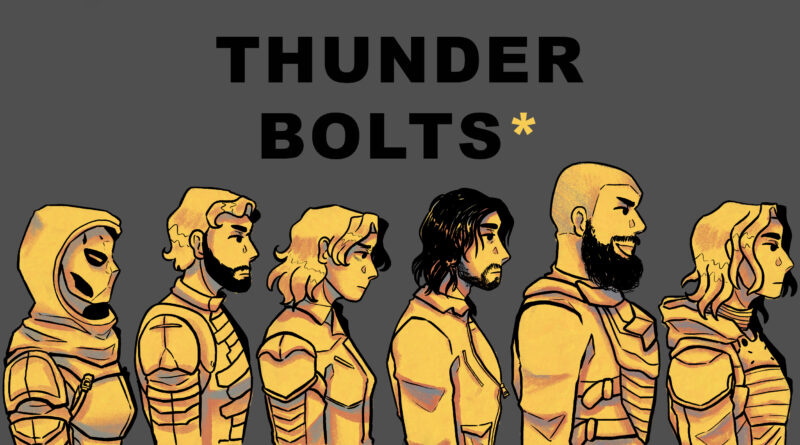Thunderbolts* Review: A Tribute to the Past, a Spark for the Future
Illustration by Isabella Zurzolo
This review contains mild spoilers regarding themes and general character conflicts.
Through the end of Marvel’s Phase 4 and into Phase 5, the studio has faced increasing criticism for its films and series. The stable footing Marvel built through its genre-defining superhero films in the 2000s seemed to waver. Yet recently, a shift has become evident — with increasingly well-reviewed projects such as “Deadpool & Wolverine”, the studio appears to be regaining its balance. “Thunderbolts*” stands as a clear step forward, signaling a confident push toward a stronger, more grounded future.
But “Thunderbolts*” doesn’t succeed by simply returning to the style of its beloved predecessors. Instead, it grows from the foundation they laid — with snarky quips, found-family dynamics, sacrificial action, and more — while maintaining a personality and individuality of its own. A balance (while it would be bold to call it perfect just yet) of old and new.
There are many areas of success throughout this film — the story, characters, relationships, antagonists, and more. The action, as is usual with Marvel films, was gorgeously choreographed and (most importantly) purposeful. The motivations and emotions behind the fights evolve with the characters’ changing relationships and independent journeys. These fights impact how they see themselves, how they see others, and how others see them — all tying back to a theme of purpose woven throughout the film.
Another major theme, and the point of much discussion, is mental health and depression. While other Marvel projects may have explored this theme in the past, “Thunderbolts*” prioritizes it throughout the film. Despite being a sensitive topic, it’s handled with empathy and relatability. It opens the door for deeper exploration of characters many viewers have already met.
However, the topic of characters is where one of the main critiques of this film comes in. “Thunderbolts*” features strong performances from its cast and offers meaningful growth for some of its pre-established heroes. However, the distribution of attention among them felt uneven. Prioritizing a character or two isn’t inherently bad — in fact, I greatly enjoyed the arc of the character most spotlighted — but higher stakes could’ve been built by fleshing out the rest of the team a bit more, and giving more time to overlooked characters. Even a small shift in focus could have helped establish a stronger relationship between the audience and the group as a whole.
This also ties into another common critique: the pacing. The story itself is engaging and attention-grabbing, but the film’s beginning sometimes felt overemphasized. The climax and conclusion of the film held so much power – both physically in fights scenes, and emotionally. However, they went by quickly. Not to mention, the antagonist was, plainly put, extremely cool — which makes me only wish that we got to spend more time with him.
But overall, this film delivers a story, characters, themes, and action that are entertaining and relatable — even outside the greater context of Marvel films. On top of that, it not only sets up compelling plot points and conflicts for future stories, but also helps re-establish the signature Marvel style that many fans have been craving.
